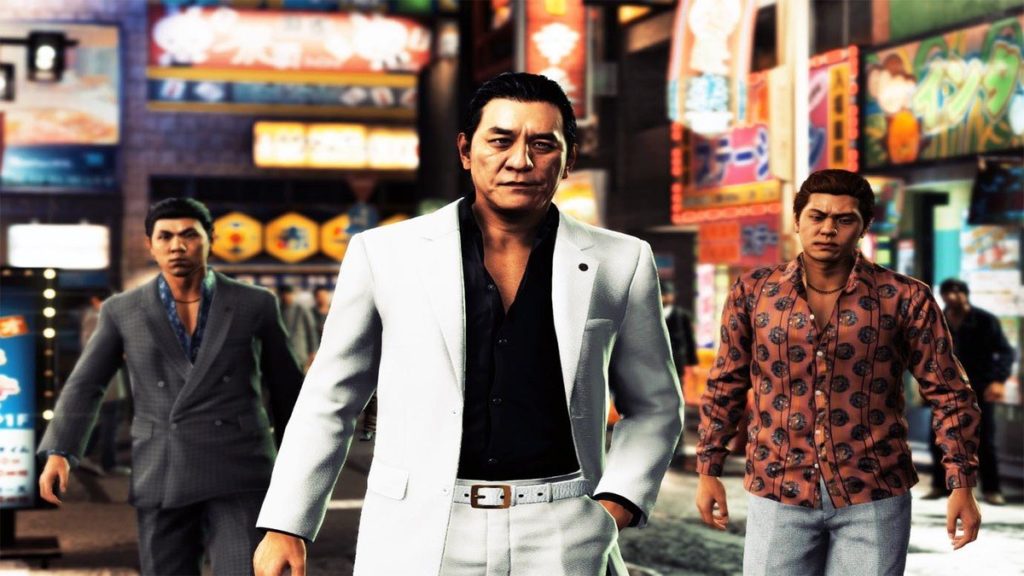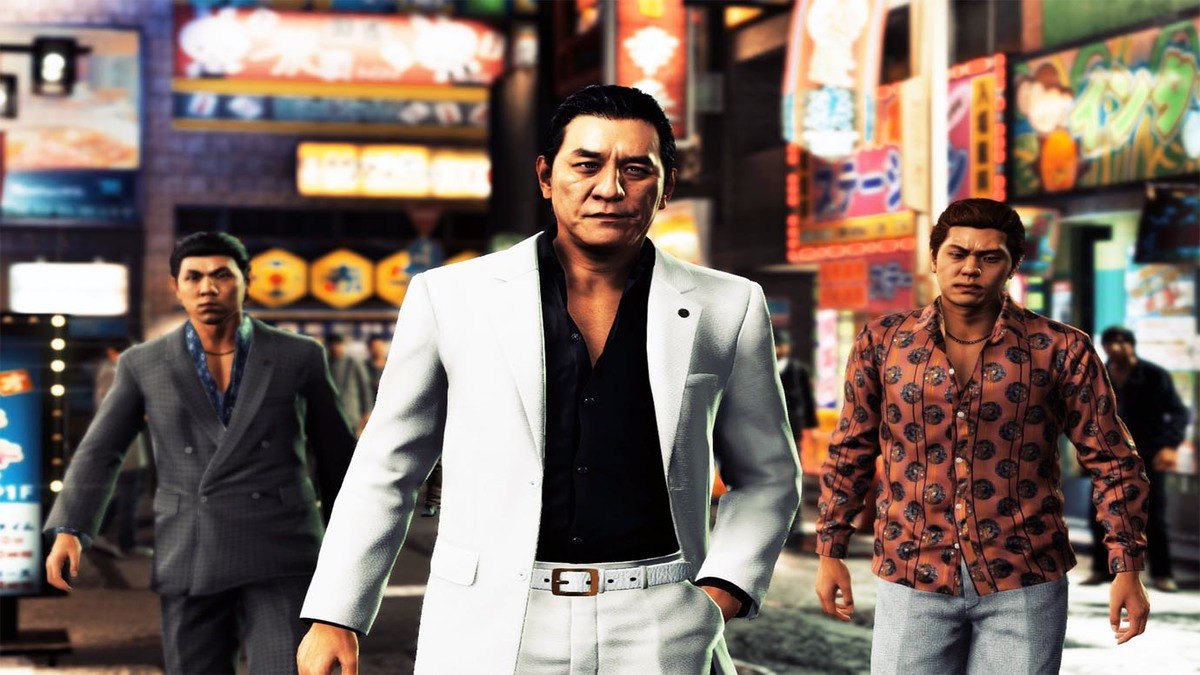by Kaori Shoji
The March 12 arrest of Pierre Taki (real name: Masanori Taki) for possession and usage of cocaine sent shock waves through the Japanese media. Now that April and the new Reiwa era has kicked in, the hew and cry over Taki’s fiasco has died down somewhat. And he is out on bail. And of course, he did a 30 second bow, after his release to show he was very very contrite. And yes, there is someone out there who actually counts the length of an apology bow. By the end of the Reina era, the average “bow of apology” is expected to stretch to 75 seconds.

The repercussions however, are far from over. Pierre Taki went from being the frontman of synthpop/techno band Denki Groove to one of the most visible actors in Japanese film and television. Taki was never a lead man but with his deadpan humor and weighty presence, he had carved out a John Malkovich-like position and as such, the man is not easily replaceable. At the time of his arrest Taki had been working on a number of TV dramas including NHK’s prestigious Sunday night series Idaten. NHK has announced that they have deleted all of Taki’s scenes including the ones already aired. Apparently, NHK is shooting everything again from scratch, tripling the workload for cast and crew members while other major networks scrambled to cancel Taki’s scenes and appearances. All of Taki’s product endorsements were pulled out. Sales of Sega’s video game Judgement Japan in which Taki appears as a key character, has been stopped.
Judgement Japan was a spin-off of Sega’s popular yakuza games series (龍が如く in Japan) and coincidentally, the series also had another actor retroactively removed from the a game after allegations of cocaine use were published. Even in a game about yakuza, it’s not acceptable for the actors playing the characters, who use drugs, to actually use drugs. In a show of moral consternation, Denki Groove’s music was subsequently yanked off the Net.
Adhering to the Japanese custom in such cases, Taki’s elderly father has appeared in the media to apologize for the wrongdoings of his 51-year old son. The rest of Taki’s family (his wife for instance) has not been seen.
According to news reports, Taki’s arrest cost the Japanese media over 3 billion yen in losses. That bill will be sent to Taki and it remains to be seen how he’ll deal with it.
In the meantime, Taki seems resigned to his fate. The prosecution has released part of his statement attesting to a coke habit going back 30 years. “When I was in my twenties, I was doing cocaine and marijuana whenever I went abroad. After that, the habit stuck with me,” Taki reportedly said. Rumor has it that Taki in the full-statement added “I’m not the only one,” which sounds ominous.
Speculations abound as to who’s next in-line to be busted for drug use. Japan has a reputation of being relatively drug-free, with the exception of amphetamines known as “kakuseizai (覚せい剤)” which has been around since the 1920s. Kakuseizai was and continues to be, a picker-upper used by many segments of the populace—especially yakuza and media celebrities. Interestingly enough, the drug is considered relatively harmless compared to the big baddies: cocaine and heroin. It’s also easy to lay hands on some of it, provided you have the cash and the right friends with tattoos.
Cliched as it sounds, most clubs in Roppongi have V.I.P. rooms where people like Taki can stroll in, sit down and start inhaling shabu—the other name for the drug—referring to the dry mouth and thirst that comes with usage, as well as the tendency of habitual use to suck the life out of the addict. Street prices are now fixed at 70,000 yen per 1 gram, which is a third of the price of cocaine. Five years ago, kakuseizai peaked at 90,000 yen to the gram but the word on the street is that the suppliers have come to outnumber the users.
Japan’s notoriously slow (or thorough, depending on how you look at it) narcotics investigators usually take 18 or so months to gather the evidence for a viable case, and another few months before actually making an arrest. A media analyst who wishes to remain anonymous, said: “I know of a case where the narcotics team spent three years trying to nab the president of a major ‘talent’ agency. They made sure the evidence was air-tight, went in and made the arrest. After all that, the president went free on a suspended sentence. The next year, he was back in business.”
Indeed, kakuseizai can tarnish a public image but not irrevocably. Former baseball superstar Kazuhiro Kiyohara is a case in point. In 2016 he was arrested for using and possessing kakuseizai but after the hullabaloo died down, Kiyohara reinvented himself as a rehab guru. His heavily confessional self-help books continue to sell and he makes frequent appearances on comedy shows. He has turned his misfortune into a second fortune.
The aforementioned analyst explained: “If a celebrity is going to slip, he or she better make sure they’re big enough to withstand the fall. The bigger the name, the more lenient the sentence and the faster the comeback. Everyone in the entertainment industry understands this, which is partially why it takes so long for prosecutors to make an arrest. Everyone crowds around the golden goose, to protect and nurture. A lot of peoples’ livelihoods depend on the survival of that goose. The goose called Pierre Taki kept going for 30 years.”
So is getting caught using drugs a by-product of this super-aged society? It’s sure starting to sound like it. Mega -stars like Aska, (of the music duo Chage and Aska) was arrested for kakuseizai abuse twice, but in his sixties he’s back on stage, touring the archipelago as a one-man show.
Pierre Taki may not be so lucky. Compared to kakuseizai, cocaine constitutes a serious offense and it’s much more difficult to buy in Japan. Taki has never cultivated a squeaky clean image but the overall verdict is that it will take him some time to bounce back from this one. Other celebrities arrested for coke include Shintaro Katsu, an iconic actor from the Showa era whose booze and womanizing lifestyle was in perfect sync with his yakuza roles. In 1990, Katsu (then in his late 50s) was arrested in Hawaii for possession of cocaine which he hid in his underwear. He was promptly deported back to Japan and arrested in Narita Airport but he never admitted where he got the drug and seasoned his trial with bawdy jokes. Katsu’s career and health deteriorated after that but when he died 7 years later at the age of 65–11,000 fans turned up for his funeral.
“I know this is a bad thing to say, but many in the entertainment industry tend to view cocaine as a glamor drug,” said the journalist. “Being arrested for kakuseizai is pretty much run of the mill but a coke habit suggests money, connections and status.”
If this is true, we’ll surely be seeing Pierre Taki again. He may need the money, after all.

Hello ! I think they’re some mistakes on the prices you’ve put. It seems very expensive compared to what I’ve been told.
What are the prices that you have heard? I’d love to know more.
Wow! 70,000¥ street price for a gram of meth? Haven’t touched it in many years, but it was at 10,000 a gram in mid-90s with a decent connection and it might sometimes sell at 20,000 or even 30,000 at a stretch to some but that’s a huge increase. Ditto your suggestion of coke being three times that price. That was the case but 210,000¥ a gram is crazy. You could fly to Colombia and back!
As for the origin of the word “shabu”, no one really knows. It’s possibly to do with sucking (****) or inhaling the smoke. But smoking is a more recent method, frowned on by old-timers, needles were the proper way. Even meth has a kata in Japan!
I think that the prices reported by the police and what people are really paying are radically different. Meth prices soared in recent years–and the meth using population tends to be very much in their middle-ages now. It’s a drug for people in their late 30s and older.
Well he is back on the air with this ninja thing.
All good if you provide ne.